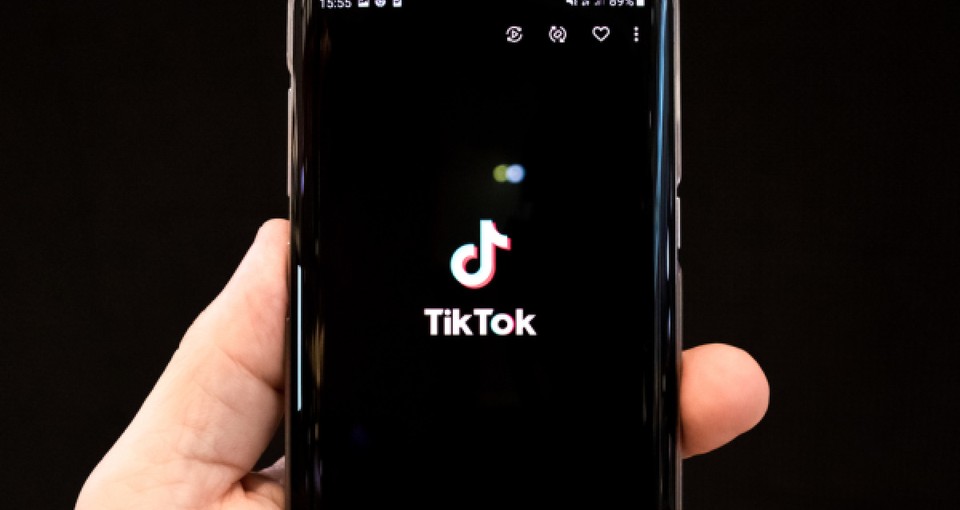Is TikTok Dangerous for Kids?

Why yes. Yes, it is. Now, I shall explain further.
The fact is, it's no secret that social media as a whole is riddled with pitfalls and dangerous places. We read about it everywhere. Even the Internet exposes itself as dangerous, and social media platforms like TikTok put age limitations on who can sign up and register.
The bigger question is, can there be any value in TikTok for kids?
Why yes. Yes, there can. So, how do we approach TikTok when it comes to our kids? There are several points to consider:
1. Follow the Age Limit
TikTok states a child must be thirteen years or older to register an account with TikTok. Let's be honest, no magical age makes a kid ready to see some of the content on TikTok, but at least there's a semblance of a guideline.
It is very easy to fudge an age and obtain an account. Don't. Just don't. They're not thirteen? Then don't let them sign up and pretend to be sixteen. There's really no reason why a child under the age of thirteen needs to have access to TikTok, and supervising it will become a complete nightmare. TikTok is not easily supervised.
2. Consider Parental Controls
There are ways to lock down some of the content your child can view. You can do this by subscribing to other apps that serve this specific purpose, utilizing Google or Apple parental controls, etc. It's not a bad idea to set these in motion to help protect against obscenities, sensuality, and so forth. But it's also important to realize these are by no means foolproof ways of protecting your children, nor are they meant to be the ultimate decision-maker in your family's viewing moral compass.
3. TikTok Is Funny and Entertaining
There is a lot to love about TikTok. From funny dances to bloopers to book reviews, thirty-second Bible devotions, and more, kids can actually gain access to a lot of harmless and even beneficial content. When you sign up, you can help your child select what topics they're interested in, and then the more they watch and like, the more TikTok will stream those types of videos to your child's view. Thus, hypothetically, this eliminates the majority of the crass and icky content you'd prefer they avoid. But remember that algorithms aren't meant to be guardians of your child's content. Algorithms can change at any time.
If you're considering letting your kid get TikTok, don't automatically discount it as "junk." Your kid won't believe you; even you won't believe you when you watch it. It's fun, entertaining, and sometimes just the break you need from life.
4. Hidden Pitfalls Are in TikTok
Depending on where your family stands on different issues, you will probably find some hidden pitfalls in TikTok that aren't on the expected list. Some of these would be funny videos set to popular music clips that slip in sexual verbiage, crass language, and more. The video itself may be harmless, but the music could be juxtaposed with what you want your child listening to.
There are also live TikTok videos. These are videos made by TikTok users who live-stream, and the videos happen in real-time. Legal or not, these users will often aim their camera at a movie/tv screen, and you can watch the movie with them. From a content point of view, it's harmless if it's Mulan, but not so harmless if it's Shawshank Redemption and your kid decides to watch it.
Other hidden pitfalls can be scantily clad women in otherwise funny videos, specific agendas or belief systems being espoused and spread throughout TikTok, exposure to traumatic accidents/death stories, and more. Some of TikTok is meant to be sensationalized, but some of it is also genuine people putting their lives out there for the world to see. Sometimes too much realism is simply too much.
5. The Creepy Side of TikTok
Let's be honest. We think of TikTok and our kids as watching content created by others. But your kid can create their own content and upload it too. There are some creepier things to be aware of here.
Sure, there's the obvious "what if my kid shoots an inappropriate video and it is publicized?"—a TikTok form of "sexting"? TikTok does have its community guidelines of no nudity, but things can slip by algorithms, so don't assume it'll autoblock your kid's answer to a friend's dare to post a risque video. Also, there are illusions of nudity that can get by on TikTok, such as "silhouettes" set to sensual music.
And then, even creepier, if your child doesn't have specific options blocked on a video they upload, their video can be "dueted" and used by others. This means that even if your child's uploaded video is innocent, someone can take it and use it for nefarious means if the right boxes aren't checked. Now, if your child's account is accurate to their age, and if they're under sixteen, the last I researched, TikTok will automatically mark their accounts as "private." But let's assume when they signed up, they didn't put their actual birthdate in - your thirteen-year-old may, according to TikTok's knowledge, be seventeen. Therefore some of the built-in safeguards are easily skirted, even unintentionally.
Like any social media outlet, the outlet itself is not necessarily evil. Many of these outlets, including TikTok, have content guidelines and measures set up to filter and oust videos that aren't aligned with their policies. Many videos with overt profanity will be taken down, same with nudity, violence, and more. But again, this is only when TikTok is alerted to them or finds them via their own methods. So things can and do slip by, and you, as a parent, need to be aware of this and make your own educated decisions.
Personally? I find TikTok enjoyable, fun, and can easily manage my content. On the other hand, my child doesn't necessarily have the innate filters to know what to do and how to maintain quality content. Not to mention, they're not even thirteen yet, so why bother with it?
So back to the original question. Is TikTok dangerous for kids? Everything has the potential to be dangerous for kids. This is, once again, where the argument for parental involvement becomes pivotal. Educate yourself as a parent. Don't take my word, TikTok's word, or some random person's word for it. Find out for yourself. What is dangerous for your child may not be as dangerous for mine, for whatever reason.
It is time that parents stop looking for social media outlets to protect their children or for others to inform them of the good, the bad, and the ugly. It is time for parents—yes, that's you—to get these apps for themselves and learn them. Use them. Make your own judgment calls. Don't assume all social media apps are dangerous and don't assume they're all harmless either.
Social media is just that—social. It exposes your child to a world of random people you do not know. Will you leave them alone there, or will you hold their hand?
Jaime Jo Wright is an ECPA and Publisher’s Weekly bestselling author. Her novel “The House on Foster Hill” won the prestigious Christy Award and she continues to publish Gothic thrillers for the inspirational market. Jaime Jo resides in the woods of Wisconsin, lives in dreamland, exists in reality, and invites you to join her adventures at jaimewrightbooks.com and at her podcast madlitmusings.com where she discusses the deeper issues of story and faith with fellow authors.
Originally published August 02, 2022.




